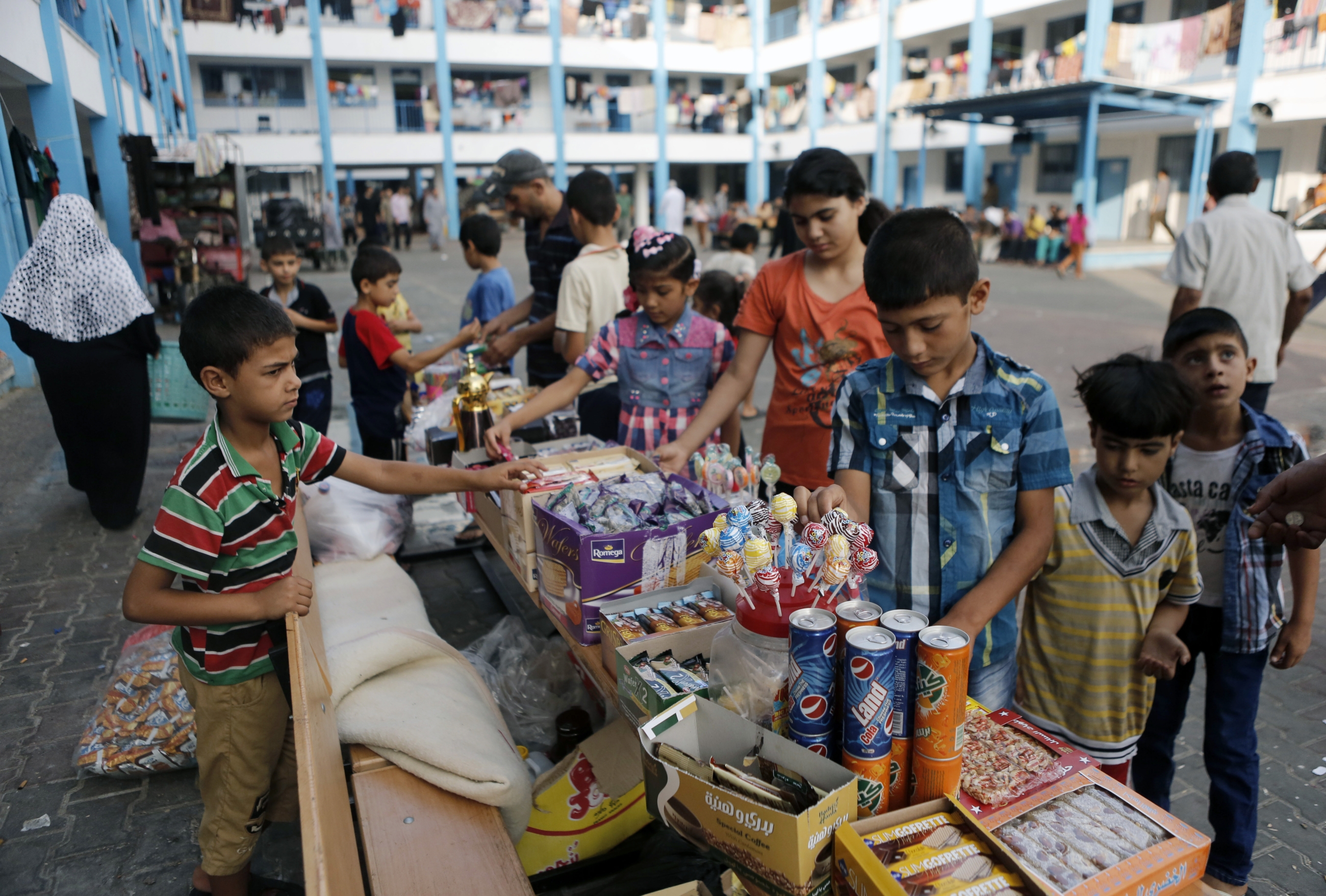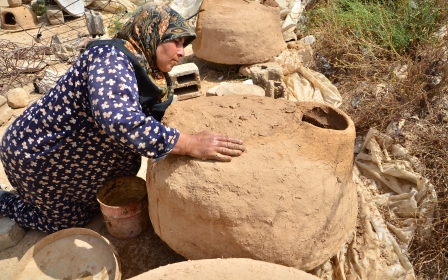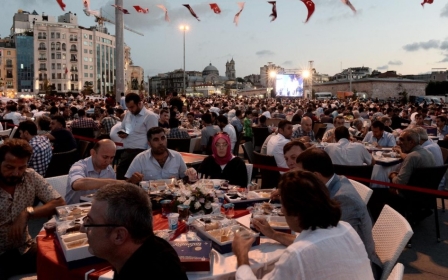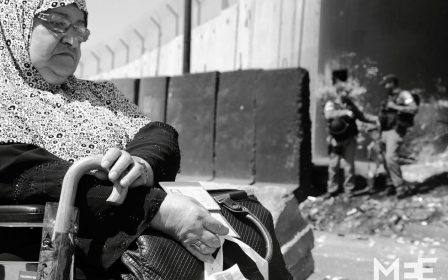Hope springs eternal in Gaza

Ramadan 2014 still lingers in the memory of most Palestinians in Gaza. This holy month - usually a time of spiritual reflection and celebration - was filled last year with physical and emotional agony, as Palestinians broke their fast amid missiles and bombs from relentless Israeli airstrikes.
Today, on the eve of Ramadan 2015, Gazans seem more hopeful, as leaked reports whisper of a possible truce with Hamas.
Statements and reports in the media are emerging, indicating a new agreement to end Israel’s eight-year siege on Gaza is likely to happen soon.
Among such indications are increasing visits by European officials to Gaza, including foreign ministers; more public statements by UN officials to end the siege on Gaza; the sudden opening of the Rafah crossing; and the recent permission for cement and construction materials to come through the Rafah crossing in order to rebuild a devastated Gaza.
The latter move was precipitated by Egypt’s sudden change of stance on Gaza, which included removing, from one of its courts, the label of “terrorist” from Hamas’s military wing, before Egypt permitted 4,000 tonnes of reconstruction cement through to the besieged Strip.
There are also Saudi-Qatari-Turkish efforts, proposing a six-year ceasefire to Hamas if it signs up to Qatari projects offering reconstruction. Israeli reports also indicate that a deal is forthcoming.
The voices of the Palestinian Authority (PA) leadership seem hysterical right now, accusing Hamas of direct dialogue with Israel.
A matter of timing
But why now? The answer seems ambiguous. And several issues are at play.
First, when the 51-day war ended, Hamas said it possessed documents that would end the siege in Gaza. It also indicated that it had captured several Israeli soldiers during this war - no one knows if they are alive or dead.
There is also a rising threat of the Islamic State (IS) group within the region. Hamas has fought members affiliated with the group, making Hamas unpopular among Islamist extremists in Gaza who have showed their displeasure by firing rockets at Israel over the past weeks. Israel is also aware that regional violence in the north affects its occupation borders on all fronts simultaneously: Lebanon, Syria and Gaza.
For now, Israel needs the 1.8 million people in blockaded Gaza in a less confrontational state, while larger threats are present on the northern fronts; and - unlike Hezbollah of Lebanon - military factions in Gaza, under pressure from the siege, don’t have the room to master the game of self-control.
There are several important changes in the Arab regions, including the death of King Abdullah of Saudi Arabia, Saudi military strikes on Houthis in Yemen and the turmoil in Syria, all of which are good reasons for the international community to avoid any potential explosions in Gaza.
A possible truce
The international community seems to acknowledge that there is no solution without Hamas. The PA is losing support as it’s seen as ineffective, especially during recent humanitarian crises in Gaza, and there are few regional players able to influence Hamas, including Qatar and Turkey. Hamas winning West Bank university elections produces a new reality that it could spread in the West Bank. Support for resistance groups in Gaza has not faded - rather it is getting stronger, as Israel inflicts more destruction on the Strip. The 51-day war last summer aimed to destroy Gaza’s infrastructure and economy long-term, and punish nearly two million people for seeking freedom and self-determination from Israel’s occupation and collective punishment.
Consequently, the issues reportedly being discussed now include: a long-term five-year truce with possible extension; an end to Israeli airstrikes and drones flying over Gaza; an ease of restrictions leading to the end of the siege; Palestinian fishermen being free to fish up to 12 nautical miles offshore; establishing Gaza’s seaport with international observers and a prisoners’ exchange deal mediated by Europeans.
President Mahmoud Abbas decided to replace the Palestinian unity government with a new government consisting of all political parties, including Hamas. However, the PA seems unhappy with these moves, stating that Hamas is on its way to de-linking Gaza and the West Bank. It is still unclear if Quartet conditions still stand. Palestinian resistance groups, including Hamas, refused to abide by the Quartet conditions, which called for recognising Israel.
In Gaza, suspicions grow that Abbas dissolved the current consensus government only to disrupt efforts to ease daily life in blockaded Gaza - “a spanner in the works” so to speak, or as part of a broader power game that benefits the PA in a much larger package.
Dr Adnan Abu Amer, a Gaza-based political analyst, views the European proposal as a relabeling of Gaza as “coastal Palestine,” with a railway and highway - connecting Israel and Egypt - serving Gaza on its eastern edge.
Proposals include establishing a seaport in the northern Gaza Strip and transferring Gaza universities to the eastern part of the Gaza Strip to avoid traffic.
The current Hamas-Egypt relationship is sensitive, and neither Qatar nor Turkey are comfortable with Egyptian President Abdel Fattah al-Sisi. However, for this deal to succeed, Hamas leaders are asked to commute from Gaza and bring back a convincing argument to the hardliners in Hamas. One obstacle to this would be Qatar’s leverage to influence the Egyptian leadership to facilitate its movement in and out of the Gaza Strip.
This does not look likely any time soon - but for whatever reason, Gazans feel optimistic for positive change.
Hamas, however, is very careful not to express undue optimism as the movement wishes to avoid raising hopes in Gaza's streets without being sure that some positive outcome is guaranteed.
Public disappointments that follow false hopes tend to be directed at the government in Gaza.
- Mohammed Omer is an award winning Palestinian-Dutch journalist, based in Gaza
The views expressed in this article belong to the author and do not necessarily reflect the editorial policy of Middle East Eye.
Photo: File picture shows children buying sweets to celebrate Eid in Gaza
Stay informed with MEE's newsletters
Sign up to get the latest alerts, insights and analysis, starting with Turkey Unpacked
Middle East Eye delivers independent and unrivalled coverage and analysis of the Middle East, North Africa and beyond. To learn more about republishing this content and the associated fees, please fill out this form. More about MEE can be found here.





